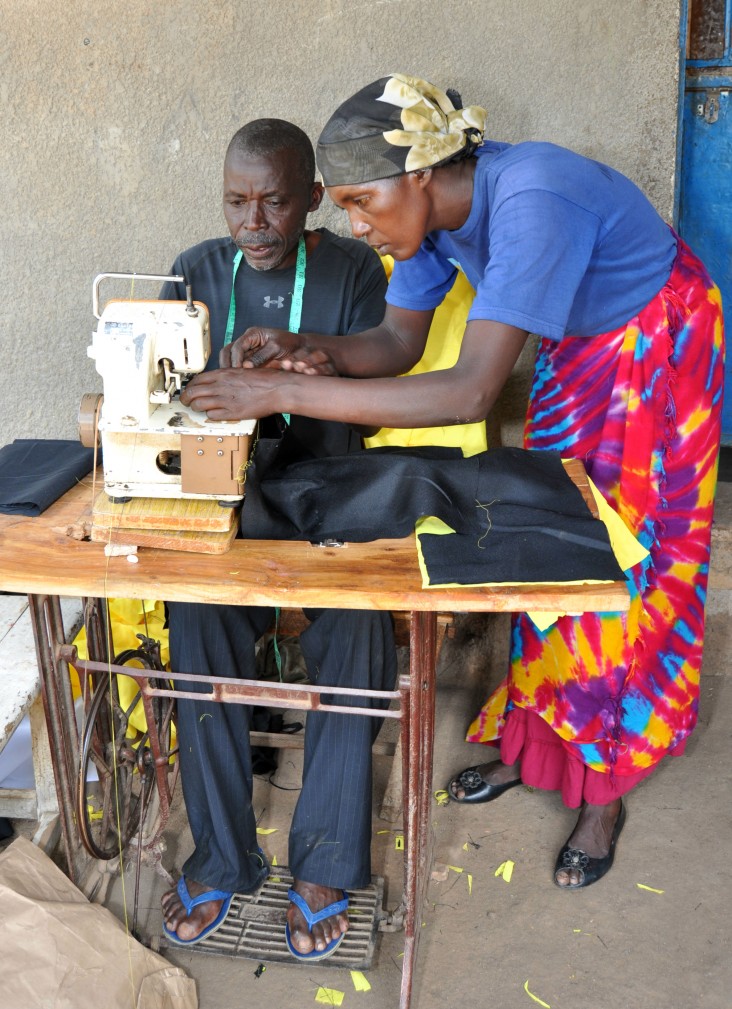
May 2017—In Rwanda’s southern province, Beatrice Mukayuhi’s family was living in despair. Both Mukayuhi and her husband, Anicet Kamana, who have six children, were HIV-positive, and caught in a downward spiral of poverty, declining health, and self-loathing.
“I always told myself that someone with HIV simply deserves to die and not live among other people,” said Mukayuhi.
But in 2012, Mukayuhi and her family were identified by a USAID-funded activity that would change their lives. The activity, called Turengere Abana, or Let’s Protect the Children, provided Mukayuhi and her husband with HIV counseling and medication, and helped her family pull themselves out of poverty.
The activity connected Mukayuhi with a local saving and lending cooperative, where she received loans to buy sewing machines, a cow and a plot of land to grow vegetables. The project taught her how to best cultivate vegetables for her garden, and paid for one of her sons to learn the construction trade.
Soon, the family was eating healthier and making more money. And with the HIV counseling and medication, Mukayuhi’s health and her husband’s health improved dramatically. After she started taking HIV medication, Mukayuhi soon gained 10 times as many vital T-helper immune system cells—the cells destroyed by the AIDS virus.
But perhaps most importantly of all, USAID’s Turengere Abana program has helped Mukayuhi cast aside her stigma of living with HIV/AIDS. Connected with other HIV-positive members in her savings and lending group, Mukayuhi was able to open up and speak candidly about her health and economic fortunes. Now strong and self-confident, Mukayuhi has learned to cherish her life—from reveling in the new friendships she has made at her saving and lending cooperative, to listening to the simple rhythm of her husband’s sewing machine on the veranda of their brand new house.
The Turengere Abana program, which runs from 2012 to 2020, was designed to help orphans, vulnerable children, and their caregivers to improve their health and escape poverty in Rwanda. So far, over 14,000 individuals have received HIV and other health counseling through the program.
LINKS
Follow @USAIDRwanda, on Facebook, on Flickr







Comment
Make a general inquiry or suggest an improvement.